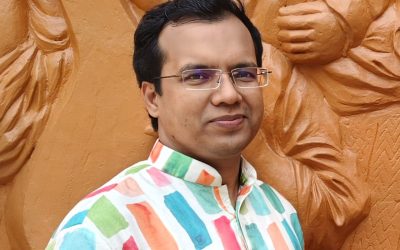It is the pathway to becoming a developed nation.
Bangladesh is at a critical juncture in its development journey. With a young population and a quickly expanding economy, there is a good chance that this country will become developed soon. But this change calls for more than simply economic expansion; it also calls for a strong educational system that is fuelled by academic freedom, civic engagement, innovation, and research.
Universities must be at the centre of this goal since they are the cornerstone of higher education. Our institutions must prioritize appropriate instruction, the humanistic values of their students, encourage research and innovation, and make the most of the demographic dividend if they are to realize Bangladesh’s full potential.
Academic freedom
The pursuit of truth, knowledge, and creativity by universities is predicated on the principle of academic freedom. It is a basic freedom that enables educators, researchers, and students to freely express ideas without worrying about reprisals or censorship. Academic freedom becomes even more important in light of national and international challenges since universities are critical to forming public opinion, defending democratic ideals, and promoting justice and human rights.
Throughout history, universities have served as hubs for scholarly discussion and debate and have frequently been at the forefront of social and political change. Universities must deal with contemporary political challenges, both domestic and global, in a world that is changing quickly. Academic freedom guarantees that academics and students can examine and debate these topics critically without worrying about social pressure or government interference.
Universities that uphold academic freedom are able to actively oppose any action that compromises human rights, democracy, the rule of law, or justice. Universities ought to be centres of study as well as organizations that promote society’s overall welfare. Academic communities have a moral responsibility to speak out against acts of authoritarianism, corruption, or injustice, to take part in nonviolent demonstrations, and to confront individuals in positions of authority.
By taking part in civic initiatives, university students significantly contribute to the advancement of public welfare. Through public advocacy, community service, or volunteering, students may positively influence topics including poverty, healthcare, education, and environmental sustainability. Student involvement in community-based projects is encouraged as universities frequently act as launchpads for these initiatives that tackle social issues. Diversity of thought and the ability to disagree are essential to a strong democracy. Even when they come across conflicting viewpoints, university students have a civic duty to converse politely and openly.
Innovation and research are essential to growth. Universities in Bangladesh need to become centres of innovation and research if the country is to transition from a developing to a developed one. Regrettably, many of our institutions continue to underfund, underuse, and frequently decouple their research from the demands of business and society. This needs to be altered.
In order to encourage a culture of research and innovation, the public and commercial sectors as well as academic institutions must work together. This entails giving research projects enough funds, offering rewards to staff and students who conduct research, and encouraging collaborations between academic institutions and business.
Research has to be performed free from outside interference or restriction in order to be significant and influential. Moreover, the freedom to disseminate research findings encourages accountability, openness, and the application of evidence-based practices in governance and policy-making. Without academic independence, researchers may be pressured to withhold or modify their results, which would compromise the validity of their study and its ability to advance society.
Furthermore, academic freedom and intellectual liberty are directly targeted by the restriction of scholarly materials. Any attempt to limit access to information, whether it be by book bans, curriculum censorship, or the suppression of intellectual debates, must be opposed by universities. At universities, maintaining the freedom of speech and writing is crucial to making sure that a range of viewpoints are discussed, represented, and understood.
The right of university community members to organize, express their opinions, and engage in nonviolent protests against social injustices, governmental policies, and topics of public concern is guaranteed under academic freedom. Universities frequently take on the role of the nation’s conscience during times of national crisis, when citizens’ rights are under jeopardy. Academic communities may oppose bad practices, show support for the disadvantaged, and hold people in positions of authority accountable through nonviolent protests. Students from Bangladesh and highly esteemed colleges in industrialized nations have demonstrated against Israel’s persecution of Palestine in recent times.
Preparing students as global citizens
Universities have a responsibility to train their students to be global citizens in addition to providing education in a world that is becoming more linked. This entails giving them the abilities and information needed to prosper in a world economy that is changing quickly. Technology literacy is becoming just as vital as conventional academic knowledge.
In order to ensure that students are competent with digital tools, data analysis, and new technologies like artificial intelligence, machine learning, and biotechnology, universities in Bangladesh must include contemporary technology into their courses. Moreover, critical thinking, teamwork, and cultural context adaptation must be taught to pupils.
To compete in a global market, one must cultivate problem-solving techniques, communication skills, and an entrepreneurial attitude. To provide students practical experience and a global perspective, universities should provide possibilities for industrial collaborations, foreign exchange programs, and internships.
Leveraging the demographic dividend
Bangladesh has a demographic dividend at the moment since a sizable number of its people are working age. This offers a special chance to accelerate development and strengthen the economy. But in order to take full advantage of this demographic advantage, we need to make sure that the younger generation is intelligent, talented, and able to advance the nation.
Universities are essential to this in many ways. Universities have the power to transform young people into contributing members of society by offering high-quality education and skill development. In order to ensure that everyone can contribute to and benefit from the progress of the nation, universities should also concentrate on fostering an inclusive atmosphere that empowers women, minority communities, and students from underprivileged backgrounds.
Furthermore, it is imperative to address the problem of graduate unemployment. In order to guarantee that graduates have the abilities and knowledge that employers want, universities must design their curricula to meet the demands of the labour market. The gap between education and employment may be closed via career counselling, job placement services, and industry partnerships, enabling graduates to find fulfilling jobs and have a positive impact on the economy.
Political meddling, ineffective administration and a lack of funding have historically caused disturbances in Bangladeshi universities, making it more difficult for educational institutions to run efficiently, which lowers the standard of instruction. It is crucial to make sure that colleges run smoothly and without unneeded disruptions.
Bangladesh’s ability to become a developed country depends on the quality of its educational system, especially its universities. Universities need to be in the vanguard of promoting academic freedom, public participation, research, and innovation in order to fully realize the potential of this nation. Teachers must provide children with the tools necessary to succeed in a global market that is changing quickly by encouraging technology literacy, cultural acuity, and critical thinking. Furthermore, it’s critical to take advantage of the demographic dividend that the nation has; colleges need to make sure that the younger generation is not just educated but also talented and employable. Universities that address issues like graduate unemployment, promote inclusive education, and reduce political intrusion have the potential to become pillars of national development.
There is no alternative to proper research (dhakatribune.com)


Very well presented. Every quote was awesome and thanks for sharing the content. Keep sharing and keep motivating others.
There is definately a lot to find out about this subject. I like all the points you made